New York, NY – Established by the larger-than-life, controversial businessman, producer and visionary Haruki Kadokawa, the game-changing Kadokawa Film studio redefined Japanese popular culture and media from the late 1970s through the 1980s with a series of highly marketed blockbusters, pop idol vehicles and off-the-walls genre films, each a unique blend of mainstream pop and experimental cinema unlike anything Japan had seen at the time.
To celebrate the 40th anniversary of Kadokawa’s shift from publishing house to cinematic powerhouse, Japan Society presents Pop! Goes Cinema: Kadokawa Film & 1980s Japan, a mini-retrospective of six celebrated and rarely-screened selections from Kadokawa — almost all in brand-new 4k restorations.
Running November 8 through December 17, the series presents the wildly popular genre favorites Sailor Suit and Machine Gun and The Little Girl Who Conquered Time, both among some of the most defining films of the 1980s in Japan, as well as more obscure titles that embody Kadokawa's trademark highbrow-lowbrow clash of sexy, broody, sensual and cool. Revelations abound for the uninitiated and familiar alike from Yusaku Matsuda’s creepy, all-or-nothing performance in The Beast to Die, to the hauntingly beautiful melodies of W’s Tragedy by Joe Hisaishi. Rounding out the series are the unconventional romance Play it, Boogie-Woogie, and the bigger-than-big budget Virus, starring a globe-spanning international cast.
Featured filmmakers include some of Japan’s most revered cult and genre directors, notably Toshiya Fujita (Lady Snowblood, Stray Cat Rock), Kinji Fukasaku (Battle Royale, Battles Without Honor and Humanity) and Nobuhiko Obayashi (House, School in the Crosshairs), as well as several career-making and/or career-defining performances from Yusaku Matsuda, one of Japanese cinema's biggest stars though virtually unknown outside of Japan, to Tomoyo Harada and Hiroko Yakushimaru, Kadokawa’s biggest idol stars, whose debut roles are included in the series.
With the exception of Play it, Boogie-Woogie all films have been newly restored digitally as 4k scans output to 2k DCPs, with these screenings marking the U.S. Premieres of the restorations. None of these films are available on home video with English subtitles.
When Haruki Kadokawa transformed the mid-size publishing house into a film studio, he formulated a revolutionary-for-its-time "mixed media" marketing strategy that sold films with crossover books and soundtrack albums. Jumpstarting the 1970s blockbuster phenomenon in Japan, in just ten years the studio produced six of the ten most successful films in Japanese film history. In addition to producing over 70 films and directing six, the flamboyant and eccentric Kadokawa was a prize-winning poet, accomplished sailor, and even the head Shinto priest of his own shrine.
"While an older generation of film critics despised Kadokawa and his films as a step towards depoliticization and a totalizing consumer culture, Kadokawa’s media mix captured the burgeoning anything-goes atmosphere of 1980s pop culture in Japan," writes series curator Alexander Zahlten, Associate Professor of East Asian Languages and Civilizations at Harvard University, and Program Director for Nippon Connection Film Festival in Frankfurt, Germany from 2002 to 2010. "Kadokawa Film defined an era – and laid the groundwork for the vibrant Japanese media ecology of today."
Japan Society's Senior Film Programmer Aiko Masubuchi adds, "These selections represent a monumental shift in Japanese cinema that happened during the early 1980s, an often overlooked or unfairly maligned decade in Japanese film history that, for better or worse, completely changed popular culture in Japan. While many Japanese audiences will be very familiar with these titles and their stars, this is largely an introduction for New Yorkers to the uniquely spectacular cinema of excess and imagination that characterized Kadokawa Film."
Pop! Goes Cinema is an extension of 40th anniversary celebrations happening this year throughout Japan, including a Kadokawa-organized festival so popular that an encore is in the works, and a major retrospective at Tokyo's National Film Center, Museum of Modern Art, Tokyo.
Admission: $13/$10 seniors and students/$9 Japan Society members. Special Offer: Purchase tickets for at least three films in the same transaction and receive $2 off each ticket. Tickets can be purchased in person at Japan Society, online at www.japansociety.org, or by calling the box office at 212-715-1258.
SCHEDULE & DESCRIPTIONS
All films in Japanese with English subtitles unless otherwise noted. Film descriptions written by series curator Alexander Zahlten.
Sailor Suit and Machine Gun (Serafuku to Kikanju)
Tuesday, November 8 at 7 PM
**New 4k Restoration
**Followed by a reception
1981, 112 min., DCP, color. Directed by Shinji Somai. In English with Japanese subtitles. With Hiroko Yakushimaru, Tsunehiko Watase, Akira Emoto.
One of the defining films of 1980s Japanese cinema, Sailor Suit and Machine Gun shows pop idol/actress Hiroko Yakushimaru and director Shinji Somai at the peak of their powers through the story of a schoolgirl who becomes the head of a yakuza group and takes on a sinister drug cartel. Somai uses the pulpy premise to design fascinatingly orchestrated and downright wacky long takes that explore the meaning of postmodern Japan's image culture. For Kadokawa Film it was one of the defining successes of their idol strategy, creating cypher-like media personas that were like nothing that came before. Based on 1978 novel by Jiro Akagawa, Sailor Suit and Machine Gun became the fourth most successful film from Japan at the time and won two Japan Academy Prizes. Yakushimaru was Kadokawa’s first idol star, and the film launched her successful career as an actress and pop singer.
The Beast to Die (Yaju Shisubeshi)
Tuesday, November 15 at 7:00 pm
** New 4k Restoration
1980, 119 min., DCP, color, in Japanese with live English subtitles. Directed by Toru Murakawa. With Yusaku Matsuda, Takeshi Kaga, Hideo Murota.
Action star Yusaku Matsuda started his journey towards melding arthouse film and pop in this mesmerizingly stylized and Nietzschean heist film about a war reporter planning to rob a bank. Scriptwriter Shoichi Maruyama became an overnight sensation for his unique mix of the surreal and hard-boiled realism. Haruki Kadokawa used the film to embark on a new kind of small-scale blockbuster that emphasized artistic freedom. Though based on a bestseller by Haruhiko Oyabu, Kadokawa told Maruyama: "All I want is the novel's title and your modern sensibility." Foreshadowing the self-reflexive play of Japan's bubble era, the film tackles the insecurities of an increasingly international Japan.
Virus (Fukkatsu no Hi)
Tuesday, November 22 at 7:00 pm
** New 4k Restoration
1980, 156 min., DCP, color, in English, French, German and Japanese with English subtitles. Directed by Kinji Fukasaku. With Masao Kusakari, Isao Natsuyagi, Sonny Chiba.
By far the most expensive film ever made in Japan at the time, the apocalyptic blockbuster Virus was Kadokawa's most widely distributed film outside of Japan. Kinji Fukasaku (Battle Royale, Battles Without Honor and Humanity) directs this spectacular story of the struggle for survival of a team of international scientists in the Antarctic after a virus has wiped out the rest of humanity and set off a nuclear countdown. The apex of the Kadokawa blockbuster strategy, Virus was rolled out with a massive advertising campaign. Both gripping and campy, the film signaled the end of Haruki Kadokawa's quest for ever bigger films and his re-orientation towards pop experimentalism and idol stars. The film features a sizeable international cast including Hollywood stars George Kennedy, Olivia Hussey, Robert Vaughn, Glenn Ford, Edward James Olmos, and Chuck Connors. This screening is of the Japanese version, which is almost 50 minutes longer than the cut distributed in the U.S.
Play it, Boogie-Woogie (Suro na Bugi ni Shite Kure)
Tuesday, December 6 at 7:00 pm
1982, 130 min., DCP, color, in Japanese with live English subtitles. Directed by Toshiya Fujita. With Atsuko Asano, Masato Furuoya, Tsutomu Yamazaki.
A young woman, a motorcycle-riding youth, and an older man negotiate a strange and tensely romantic relationship in a film that is unusual in the Kadokawa lineup. Employing 1970s wildman director Toshiya Fujita (Lady Snowblood), Kadokawa Film continues to play with the fragments of U.S. pop culture while Fujita injects a playfully stylized realism. The film continued Haruki Kadokawa's new strategy of using more auteur-minded directors that had no qualms about working in genre film. Atsuko Asano created a stir for her embodiment of a young woman not willing to be bound by conventions and intent on negotiating new forms of relationships.
The Little Girl Who Conquered Time (Toki o Kakeru Shojo)
Tuesday, December 13 at 7:00 pm
** New 4k Restoration
1983, 104 min., DCP, color, in Japanese with live English subtitles. Directed by Nobuhiko Obayashi. With Tomoyo Harada, Ryoichi Takayanagi, Toshinori Omi.
Launching Kadokawa idol Tomoyo Harada into superstardom, this timeslip drama is based on the famous science fiction novel by Yasutaka Tsutsui and directed by the creative whirlwind Nobuhiko Obayashi (House). As Harada's schoolgirl struggles to figure out why she uncontrollably jumps forward and backward in time, Obayashi's unique and offbeat sensibility crafts a film that captured the hearts of an entire generation of moviegoers in Japan. It also offers a meditation on the new sense of time that a Kadokawa film offered--a vision of Japan that is simultaneously past, present and future. Remade several times since, the most well-known version in the U.S. is the 2006 anime version by Mamoru Hosoda.
W’s Tragedy (W no Higeki)
Saturday, December 17 at 7:00 pm
**New 4k Restoration
**Introduction with guest curator Alexander Zahlten
1984, 108 min., DCP, color, in Japanese with live English subtitles. Directed by Shinichiro Sawai. With Hiroko Yakushimaru, Yoshiko Mita, Masanori Sera.
W's Tragedy racked up all of the major film prizes of 1984 in Japan (Best Director, Film Script, Actress, Supporting Actress and Best Recording for the 9th Japan Academy Prize), a rare occurrence for Kadokawa's pop experimentalism (often met with open revulsion by the powerful older generation of film critics). In her last film for Kadokawa, Hiroko Yakushimaru stars as a young, aspiring stage actress who develops frightening ambitions to become a star in this self-reflexive, fascinatingly complex film. Shinichiro Sawai, one of the great, under-appreciated directors of the 1980s, masterfully follows the sometimes mind-bending Kadokawa pattern of making films that are, in some way, always also about Kadokawa. Scored by Joe Hisaishi, best known for scoring nearly all of Hayao Miyazaki’s films.
≥≥RELATED LECTURE
Kadokawa & the Shaping of Japanese Popular Culture
Saturday, December 17 at 5:00 pm
Flamboyant and eccentric, Haruki Kadokawa transformed the film and media industry by marketing his films through what he called "media mix." From Haruki's wildly successful entry into film production to the turn towards marketing idols and his spectacular self-promotion, Kadokawa films created the template for the postmodern, anything-goes Japanese pop culture of the 1980s. Later, his brother Tsuguhiko radicalized the media mix model by changing the very way media is consumed. In this talk series curator Alexander Zahlten introduces some key moments in Kadokawa's shaping of Japanese popular culture from the 1970s to today. Approx. 60 min. This event is free with the purchase of a ticket to any film in the series. Seating is limited. Ticketholders will be accommodated on a first-come, first-served basis.
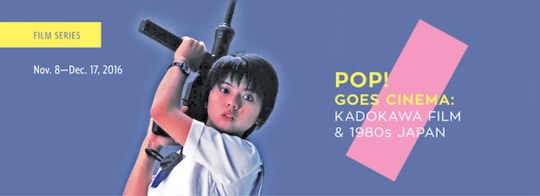
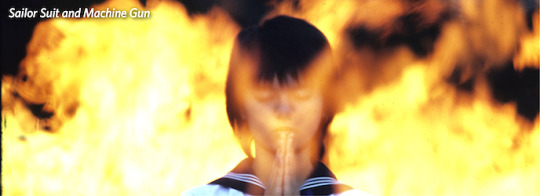
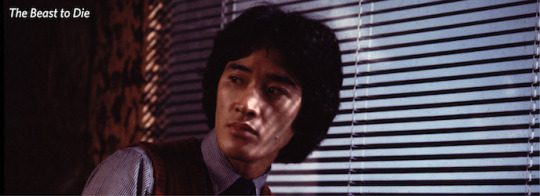
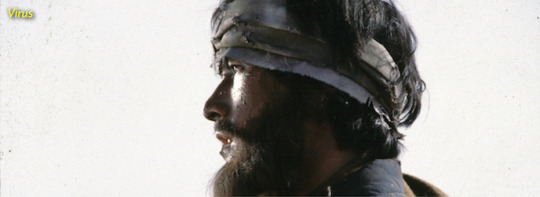
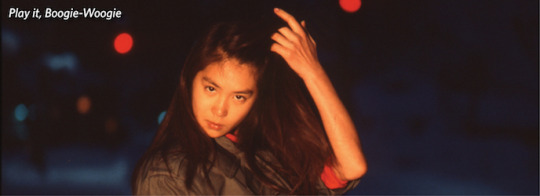
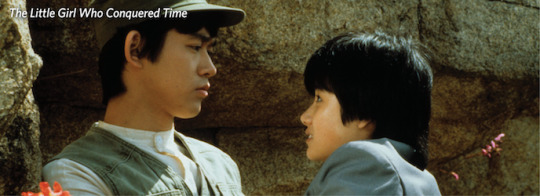
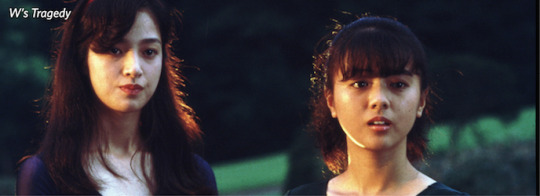
No comments:
Post a Comment